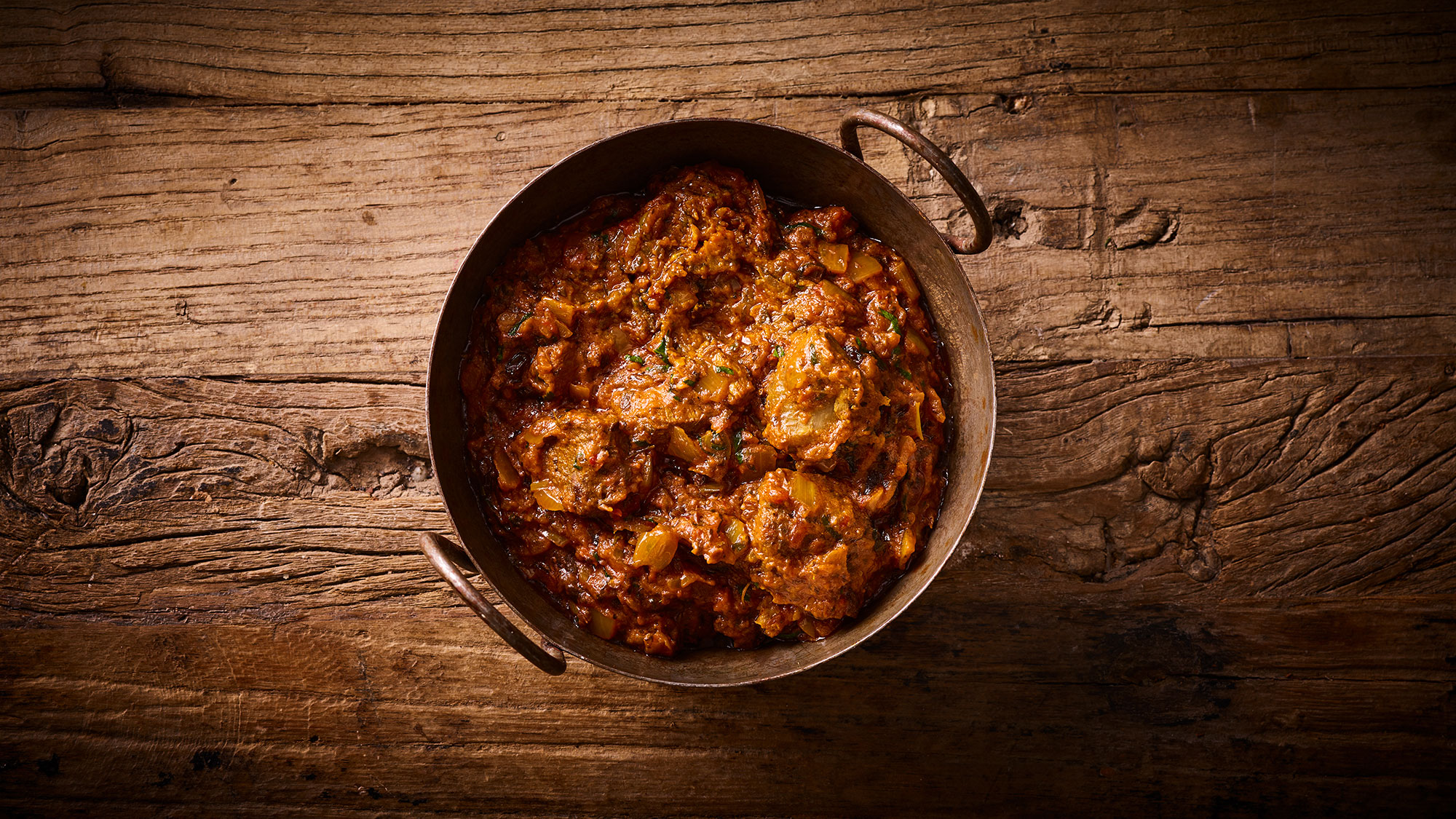
In Bindia’s Lamb Jeera Masala you will get a bite of the true, authentic India, raw and undiluted and with lots of exotic spices – but it is still Jeera that’s in charge.
”Jeera” means cumin and ”Masala” is the name of the countless spice blends, which traditionally are made from scratch in the Indian households. In the West, the Masala spice blend is best known as curry powder (sometimes called “Garam Masala”) even though it’s not quite the same.
The curry powder was, in fact, devised in the 18th century as a British attempt to standardize and commercialize the many exciting spice blends, which are so central to Indian cooking.
There are several good reasons why the western curry powders never reach the quality of a true Indian masala; among other reasons, during cooking Indians use spices in more intricate ways than we traditionally do in the West where the curry powder is often as if it were salt. Even though there exists far wider variation among the true Indian Masalas, both the curry powder and its ‘ancestors’ often contain cumin as a supporting or dominating spice.
This spice is similarly often used in chili powders. As a matter of fact, cumin is probably the most widely used spice ever, and it exists as something akin to a basic element in a variety of kitchens – not just in India, but also in such places like Northern Africa and the Middle East.
The spice has a particular warmth and an almost smoky, nutty, or earthy taste. If added correctly during the cooking process, it can add depth to other flavors – even in tiny quantities and in dishes you wouldn’t suspect would be a fitting candidate for cumin.
Consequently, it has been used anywhere it can be cultivated and it has had a prominent culinary role in great civilizations like the Roman Empire and Ancient Greece. In Ancient Egypt, cumin was both used for cooking as well as in the mumification process. Due to archeological excavations, we know that cumin has at least been used by humans for about 8,000 years.
Since time immemorial, cumin has similarly been a cornerstone in India, which today is the world’s biggest producer of the spice, contributing to about 70% of the world’s total output. Especially in Northern India where Bindia’s founder and head chef, Amer Suleman is from, cumin is almost something like a basic substance, and many North Indian curries therefore often begins with a tempering including cumin.
Tempering is a specific spicing method common in India and its neighboring countries. During tempering, grinded spices are stir-fried at burning hot temperatures. When the crushed spices hit the boiling fat, they produce a heat shock response by discharging their essential oils and, thereby, rich flavor. And, of course, we do the same in our Lamb Jeera Masala with cumin and other exciting spices, including ajwain and turmeric.
”There’s a tendency in the West that an Indian curry should be puréed, almost mashed into into a porridge,” says Amer Suleman. “But in my Lamb Jeera Masala, I want you to be able to see, feel, and taste everything – in a raw and undiluted sense.”
Obviously, cumin is the most influential spice in this authentic Lamb Jeera Masala. It doesn’t just add depth to the other spices, but simultaneously compliments raw materials like ginger, garlic, onion, and tomato.
Furthermore, we only use meat from grazing sheep from New Zealand in our Lamb Jeera Masala, as this meat has the best smell and taste and doesn’t contain too much fat. We take measures to select for young, and therefore tender, meat, which we cut ourselves to ensure the final product is consistent with our standards.
We then roast the meat together with a tempering of ginger, carnation, and garlic, among others in a big cauldron. This removes the characteristic smell of lamb and gives the meat warm flavor and that Bindia character. All done according to traditional procedures.
Enjoy!
Try our Lamb Jeera Masala at your local Bindia in Østerbro, Nørrebro, Frederiksberg, Amager, Lyngby, and Søborg, or simply order it here.